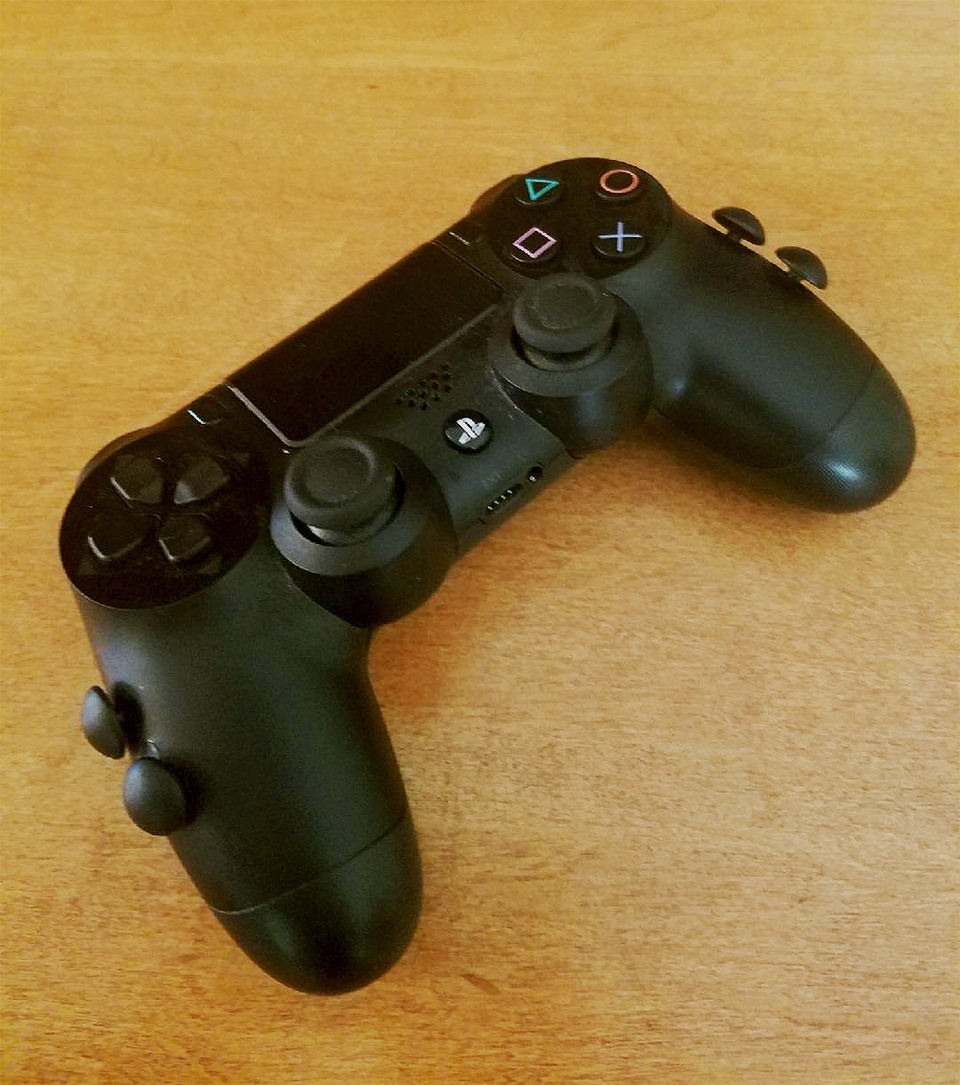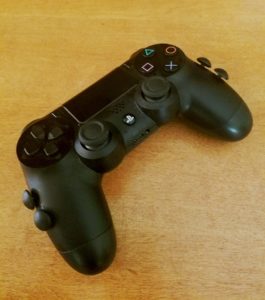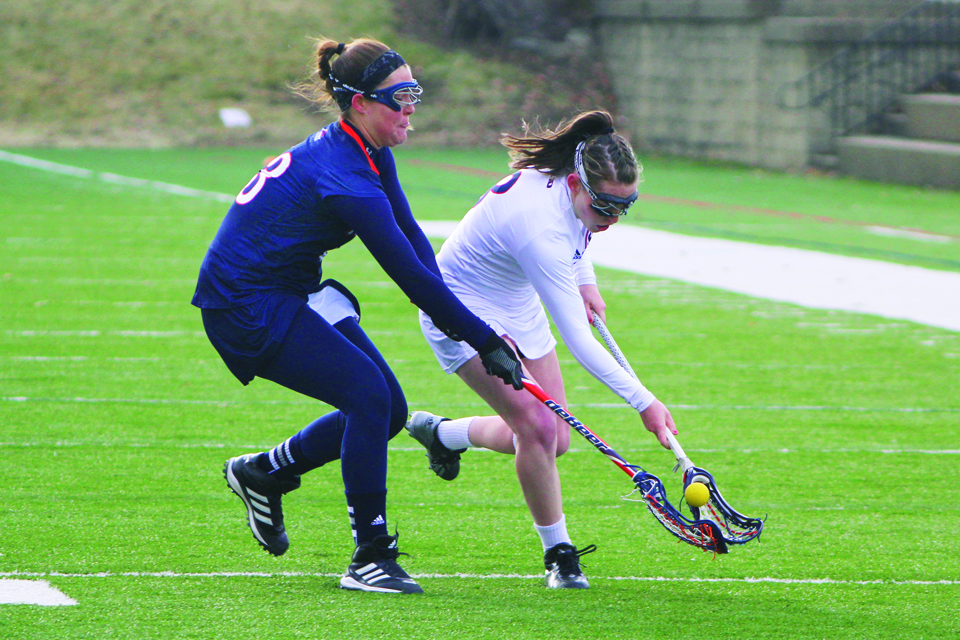

An example of a modified PlayStation 4 controller. The buttons along the side of the grips allow the use of the L1, L2, R1 and R2 shoulder button functions for those who cannot reach them.
By Grant Stoner | Staff Writer
I pride myself on being a gamer. Despite my physical limitations, I have yet to let my disease prevent me from partaking in my favorite hobby. My consoles, handhelds and computer provide gateways to hundreds of realms, where none of my avatars have been diagnosed with Spinal Muscular Atrophy type II. However, the progressive nature of my disability is slowly but surely taking away my virtual freedoms.
10 years ago, I could easily compete in a match of Call of Duty. Now, my PlayStation 4 is void of anything and everything related to first-person shooters.
With each passing year, I have grown reliant upon developers and publishers to implement accessibility options within their games. Thankfully, I am not alone.
According to a 2008 survey conducted by Information Solutions Group, 20% of casual gamers suffer from some form of a disability. Whether it be physical or mental, disabled gamers like myself are in need of services which allow them to play their favorite games.
Fortunately, there are those who have made it their vocation to advocate for these services in the digital age. Take Ian Hamilton, designer and consultant for Game Accessibility Guidelines, a site which educates developers and publishers on how to effectively integrate accessible features within their games. For over 10 years, Hamilton has informed the public about disabled gamers by being a consultant and senior designer for the BBC, speaking at gaming events such as the 2016 PlayStation Experience and organizing conferences discussing accessibility.
“What first got me into accessibility was the human benefit, seeing the difference it made to people’s lives,” Hamilton said in an email interview with The Duke.
Yet, the concept of gaming accessibility was relatively unknown when Hamilton began his mission. There was some awareness of the issue, but not as much as there is today.
“That was a real wake-up call for me, as I had naïvely assumed that accessibility in game development was at a similar level to other industries, such as web or construction, where it’s commonplace enough to just be a standard career path,” he stated.
To demonstrate, Hamilton acknowledged the gaming community as a whole. Once upon a time, disabled gamers were not always treated with respect.
“Go back about six or seven years, and a disabled gamer posting on a game’s forum about an accessibility barrier would usually be met with a great deal of vitriol, but now it’s the other way around, usually met with a great deal of support from their fellow gamers.”
I can especially relate to this statement. Years ago, I used to hide my disability from the gaming public. If my team was unable to successfully secure the objective, I didn’t want my disease to be blamed.
Attitudes toward disabled gamers have definitely improved, and Hamilton’s activities within the community are proof.
“It’s rare to see games without some degree of accessibility consideration; all the major consoles have built-in accessibility features, major figures in the industry are making public statements about its importance, people with disabilities are being actively sought out to take part in playtests,” he said. “All of this would have been science fiction ten years ago.”
In fact, the Game Accessibility Guidelines’ website was honored with the FCC Chairman’s Award for Advancement in Accessibility. Hamilton is especially proud of this achievement considering that the award was granted for the inclusion of cognitive accessibility, which tends to be overlooked. This includes gamers who may suffer from memory loss, Dyslexia or even Attention Deficit Disorder.
Despite the overwhelmingly positive support that disabled gamers are receiving, accommodations are not universal. Occasionally, misunderstandings related to accessibility prevent features from being added to games, Hamilton noted.
Hamilton explained that developers sometimes misconstrue the addition of accessible options as “difficult and expensive,” implying that their product should not cater toward “a lowest common denominator.”
The size of a game’s development team can also create another barrier. For example, indie studios may not have the time to implement such features. Smaller studios heavily rely on sales, meaning that accessibility options may hinder the speed at which their game launches, Hamilton mentioned.
Furthermore, Hamilton acknowledged that larger development teams may not be able to approve accessibility options, instead prioritizing other features over these.
However, Hamilton isn’t concerned. In fact, developers and publishers have increasingly focused on creating disabled-friendly games.
“Ultimately game developers are usually in the industry for the right reasons, they care passionately about as many people as possible having a good experience with their game,” Hamilton said.
Speaking from the standpoint of a disabled gamer, it astounds me that so many game designers are willing to adapt their products for us. Without individuals like Hamilton leading the charge, disabled gamers may have been pushed to the side and possibly forgotten.
We play games to forget our limitations. We play games to experience freedoms. But most importantly, we play games to have fun.
With gaming becoming one of the more popular forms of media, it’s reassuring to see publishers and developers actively include disabled gamers.
“Games are a big deal, and therefore a big deal to be excluded from. And that’s what it really comes down to,” Hamilton explained. “Accessibility matters because games matter.”



